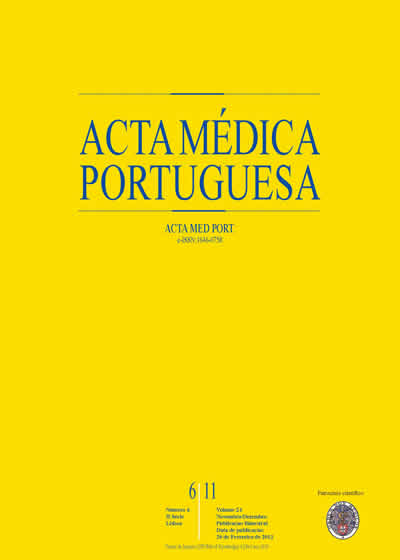Os mosquitos (Diptera, Culicidae) e a sua importância médica em Portugal: desafios para o século XXI.
DOI:
https://doi.org/10.20344/amp.1419Resumo
Mosquitoes are dipterous insects, responsible for the transmission of several pathogenic agents to humans, causing vector-borne diseases, such as malaria, lymphatic and other filariasis, and several arboviral diseases such as yellow fever and dengue. In this revision, Culicidae or mosquitoes are summarily characterized, as well as their bioecology, internal morphology, digestive and egg maturation physiology, and the main methods for their collection and control. The epidemiology of mosquito-borne diseases depends on parameters such as Vectorial efficiency, Vector competence and Vectorial capacity, the concepts of which are presented. Forty one species of mosquitoes have been detected so far in mainland Portugal. Malaria was endemic till 1959, yellow fever outbreaks were registered in the XIX century, and human cases of dirofilarisis and West Nile fever have been detected. In face of the current climate changes in course and the threat of the (re)-introduction of exotic mosquito species, not only new cases of some of these diseases may occur, increasing their risk, but also other mosquito-borne diseases may be introduced constituting challenges for the XXI century, demanding a continued surveillance in a Public Health perspective.Downloads
Downloads
Publicado
Como Citar
Edição
Secção
Licença
Todos os artigos publicados na AMP são de acesso aberto e cumprem os requisitos das agências de financiamento ou instituições académicas. Relativamente à utilização por terceiros a AMP rege-se pelos termos da licença Creative Commons ‘Atribuição – Uso Não-Comercial – (CC-BY-NC)’.
É da responsabilidade do autor obter permissão para reproduzir figuras, tabelas, etc., de outras publicações. Após a aceitação de um artigo, os autores serão convidados a preencher uma “Declaração de Responsabilidade Autoral e Partilha de Direitos de Autor “(http://www.actamedicaportuguesa.com/info/AMP-NormasPublicacao.pdf) e a “Declaração de Potenciais Conflitos de Interesse” (http://www.icmje.org/conflicts-of-interest) do ICMJE. Será enviado um e-mail ao autor correspondente, confirmando a receção do manuscrito.
Após a publicação, os autores ficam autorizados a disponibilizar os seus artigos em repositórios das suas instituições de origem, desde que mencionem sempre onde foram publicados e de acordo com a licença Creative Commons









